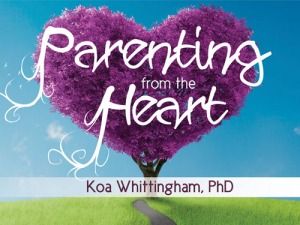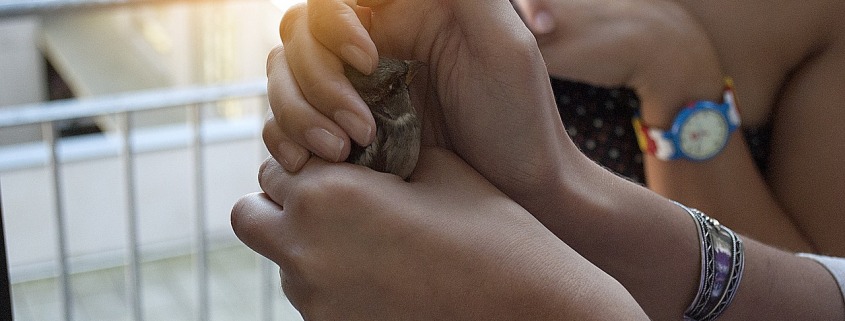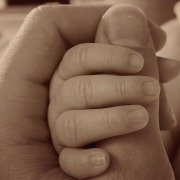Living with our protective instincts
Becoming a parent awakens a whole cluster of instincts, feelings and thoughts. A dark and scary part of our psyche, inherited from ancestors long past and dormant until parenthood, wakes within us. We find ourselves tasked with a single overriding mission: our child must survive. We discover that becoming a parent means being haunted by the fears of our ancestors. We are haunted by fears of disease, of attack, of accidents, by fears that our child may die. The overwhelming majority of parents report intrusive anxious thoughts about their baby’s safety in the early months of parenthood. As a new parent, with a tiny newborn, my own brain seemed to replay endlessly at random intervals the panicked thought: ‘Is she breathing? Is she breathing?’ Even now, intrusive, anxious thoughts about her safety are a regular part of my life. We also find, within our emotional life, an entirely new emotion: maternal rage. Maternal rage is the aggression of the mama bear defending her cubs. I didn’t realise, before experiencing it, that it feels so different to ordinary rage. Ordinary anger is hot, burning, it makes time speed up, it makes us reckless. When we act on anger, we do things that we later regret. Maternal rage is a different emotion altogether. Maternal rage is cold, calculating, it makes time slow to a crawl, it gives us a chilling rationality. It is remorseless: ‘My child must survive. Everything that must be done to achieve that must be done’. Maternal rage is cold for good reason. Maternal rage is there to spark the aggression necessary to defend our children. It is not there for fuelling attack which may only put our child in more danger. Since becoming a parent, even my nightmares have changed. Instead of being overcome with terror, running, heart pounding away from the threat, I find myself overcome with maternal rage, coldly, desperately ensuring my daughter’s survival within the terrifying dreamscape of my nightmare at all costs. Waking, my first instinct is to check that she’s okay (‘Is she breathing? Is she breathing?’). Along with the deepest joy, parenthood brings dark, uncomfortable and frightening thoughts and feelings. My grandmother used to say that once you have a child you never experience a moment of peace again. Yet, protective anxiety and maternal rage are a normal and healthy part of any parent’s psyche. Our new instincts, thoughts and feelings may be distressing but they have served our ancestors well in the past and they will serve our children well too if we can learn how to live with them. We need to stop dismissing and mocking our own protectiveness and, instead, understand and respect it. That doesn’t mean that we need to take every anxious, panicked thought about our child’s safety as the literal truth or that we need to eliminate the ‘threat’ to our child every time we feel maternal rage arise. It just means that protective anxiety and maternal rage are parts of parenthood that we need to learn to live with. That dark and scary part of our psyche is supposed to be there.
Apply it to your life: How do you live with your own protective instincts?
References: Hahn-Holbrook, J., Holbrook, C. & Haselton, M.G. (2011). Parental precaution: Neurobiological means and adpative ends. Neuroscience and Biobehavioral Reviews. 35, 1052-1066.














Leave a Reply
Want to join the discussion?Feel free to contribute!